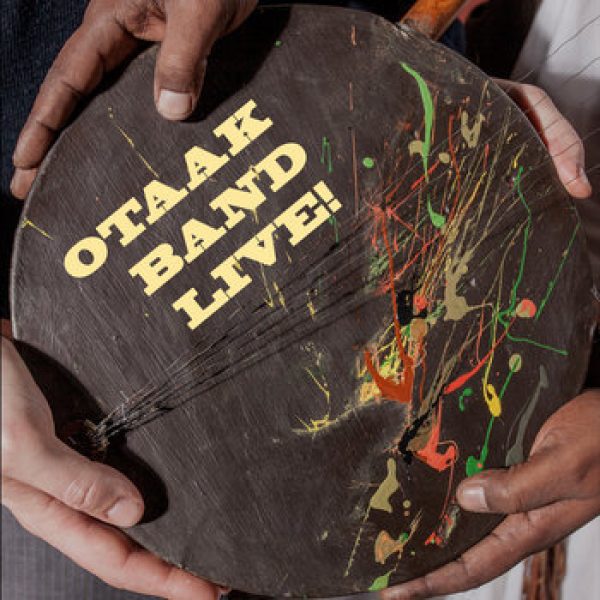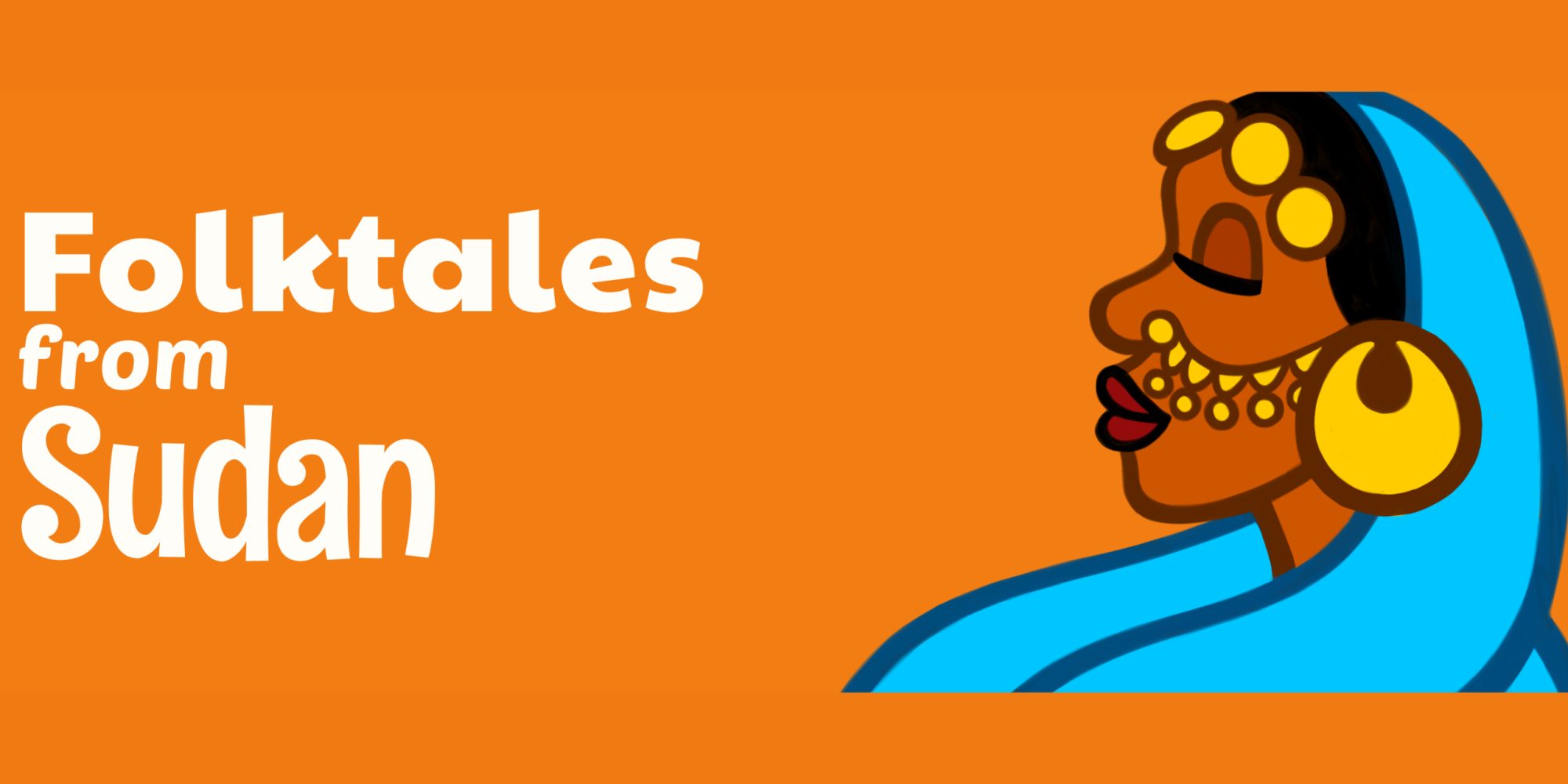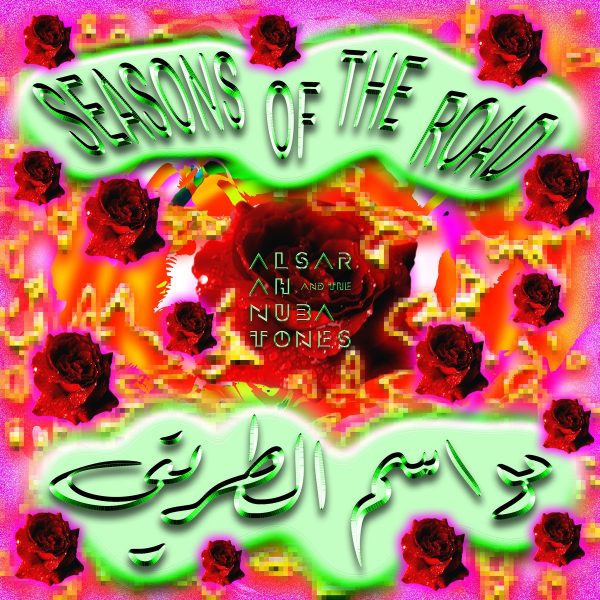Hana Baba is the award-winning host of the radio show Crosscurrents and podcast The Stoop. With decades of experience in the journalism industry, Hana has solidified herself as a pillar in the African media community. Based in California but originally from Sudan, Hana’s most recent project is the children’s podcast series Folktales from Sudan. Narrating stories never before translated or publicized to an English-speaking audience, Hana focuses on preserving Sudanese culture with this groundbreaking project. Afropop’s Salma El Boudali got the chance to speak with Hana days after the conclusion of Folktales from Sudan’s first season.
This interview has been edited for length and clarity.
Salma El Boudali: Hello! Thank you for finding the time to meet with me!
Hana Baba: Lovely to speak with you! I’m very excited.
So I've been listening to your newest podcast, Folktales from Sudan, and I've been really enjoying it. You have a really nice, narrative, storytelling voice.
Thank you.
Tell me a bit about your upbringing in Sudan, and how that contributed to the formation of this podcast.
Sure. So my family is from Sudan. But they left Sudan early, and my family—my parents came to the U.S. in the seventies. So my life has actually been here in the U.S., but with frequent visits going back to Sudan. And I think that's something a lot of immigrants can relate to—where you make your life here, but you also don't want your children to totally lose contact with the culture and your family. So we would go a lot to Sudan. And so when we went there as children, it was a very different place, of course! So, here I was, a little Sudanese-American girl growing up in Houston, Texas, and then we'd fly off to this faraway place that is so different, but has so many people that love me, who don't even know me. And so our life was a balance of here and there. Now the 1980s were very different than today. There weren't as many Africans here. There wasn't the diversity. So I think being in Houston, Texas, in 1984 is very different than Houston, Texas of today. So for my parents, there wasn't a lot of support, or a Sudanese community, or just even an African community, or a Muslim community. And so that's why I think we just went back a lot to Sudan, back and forth.
I can relate a lot to that as a Moroccan–American. My parents immigrated here, and I was born here. So you grew up in America, and these folktales that you share—they're so detailed. There's such a rich cultural tradition that you are preserving through these folktales. What about them stuck with you all of these years, and made you want to share them with your children?
When we were kids, and we would go back to Sudan on those trips, one of the experiences that was just my favorite was every Friday—Friday is like the weekend there—every Friday we would go to “the big house,” which is my grandmother's house. So all the uncles and aunts and the cousins would come on this day. Just spend the whole day. And when the sun went down after Maghrib, there would be tea with milk, and that is when my Uncle Al-Bagher would sit us all down for the story of the evening. So he is just a natural storyteller, and he and my mom and my sisters and her siblings, they all heard these stories from their grandmother, my great-grandmother—that I, of course, never got to meet. She was a treasure trove of these oral folktales because she traveled around Sudan a lot with her husband, who was a judge. And so, wherever she went, she would pick up the folktales of that place, and of course, there was no reading or writing. This is all in her head. And then she told these stories to my mom's generation, and so my uncle was the person who relayed them to us. So it'd be all the cousins sitting down, and he would be standing up and not just telling a story, but really acting it out.
And our imaginations were able to imagine what he was saying. These folktales—they're not in books. They're not read. This is an oral culture. And so Al Bagher would act out all the characters, like the old witch, or the mean ghoul, or all of these different characters. So it was theatrical, and it was fun in that way, and it totally mesmerized me, even as this child coming from America, where we have all of this children's media. There were my Saturday morning cartoons. There was television. There were movies. We have a lot of children's media here. Still, with all that, that experience of oral storytelling is the one that stuck with me. So I knew that I wanted to learn these stories. And when I grew up and got married and had my own children. . . they are Sudanese-American kids. They're third-generation, and research says that by the third-generation, language starts to go away, and culture starts to dilute. And so for me, it was really important that my children hear these stories as well. That's when I started telling them these folktales from Sudan.
It's really profound that these stories meant so much amongst everything that you were inundated with as a child, like the bright-colored TV and—or actually, maybe it wasn’t—
I come from an era of color TV. Yes, I do. I'm not that old! But yes, the American children's media machine could not compare to a story told in a little town in Sudan. [The storytellers were] just expressive, and it's not an expression that I've heard anywhere here when I was a child here in the U.S.. It's a different kind of expression, and it's a different kind of relaying these stories, and I just loved it.
It's also really nice to hear your own change of voices in the podcast. So one thing you touched on was preserving Sudanese culture and this culture of oral tradition. So was this project inspired, perhaps, by a fear of these stories—and this oral tradition—being lost? And not just with the natural shift of immigrating from one country to another, but also with the horrific violence taking place in Sudan right now. . . did any of that factor in?
I’m somebody who has been, a lot of time, in my field—public radio journalism—the only Sudanese person, often the only African, of course, or the only Black woman, or all of these different identities. But because I was the only Sudanese person in my newsroom, I've been reporting on Sudan and Sudanese for a long time throughout my career of 20 years so far. And I've always loved the cultural stories. I'm a total believer that culture connects people, whether it's reporting on the food or the music or the special rituals that we do, or our perfumes, or the history. That is what connects the listener, I think, from any background. And so I've always been reporting and doing stories about Sudanese culture—and I had always put these folktales in the back of my mind, that I should do something about these. I should do something about these, and I started collecting them from my uncle and my mom. And these are elders who are aging right. Nobody had written these folktales down, even. And so, as the years passed by, I collected more and more.
But then in 2023, war broke out in Sudan. And as a diaspora, you know, we started seeing the horrific effects of this war, just video after video of destruction. Destruction of the infrastructure, the people having to flee. But also, what touched me was the destruction of cultural institutions. We saw videos of our museums being looted. We saw videos of the music archives at the National Radio Broadcaster just destroyed. The records and the archives—there was a clear destruction of culture. And the effect that had on me was like, Wait a minute. Yes, this is a horrible war. Millions have had to flee; thousands are dead. My family had to flee the very home that I told you about, where all the stories were told. They had to escape to safety in other countries, and now they are all dispersed, those same uncles and aunts, my uncle Al Bagher, thankfully, is safe in another country right now. But all of this just added urgency for me, that this is the time that I need to preserve this corner of our culture. And that's when the fire really started in me to launch this podcast and I started re-interviewing my uncle Al Bagher in Saudi Arabia.
These people have gone through such trauma. These are our elders, and they've had to get on from bus to bus. There might be checkpoints along the way with armed people just waiting to take their money, maybe kill them, they didn't know. So they have reached safety, but after a lot of trauma. And many of our elders have passed away, have died, because of that trauma even after reaching safety. So all that to say, yes. This, for me, is definitely a project of preserving culture. And that's what a lot of us are doing in the diaspora. Our job has been support financially, of course, but support in any way we can. What can we do in our places of safety to try to preserve culture? So I started seeing these efforts pop up in Europe, in the Emirates, in Australia, in the U.K., and here in the U.S.. Perfumers making perfume, the musicians digging out music, the poets creating poetry, the artists painting. And so I said, this is our time. This is our time to step up as a diaspora, and this is my little corner that I'm going to do that in.
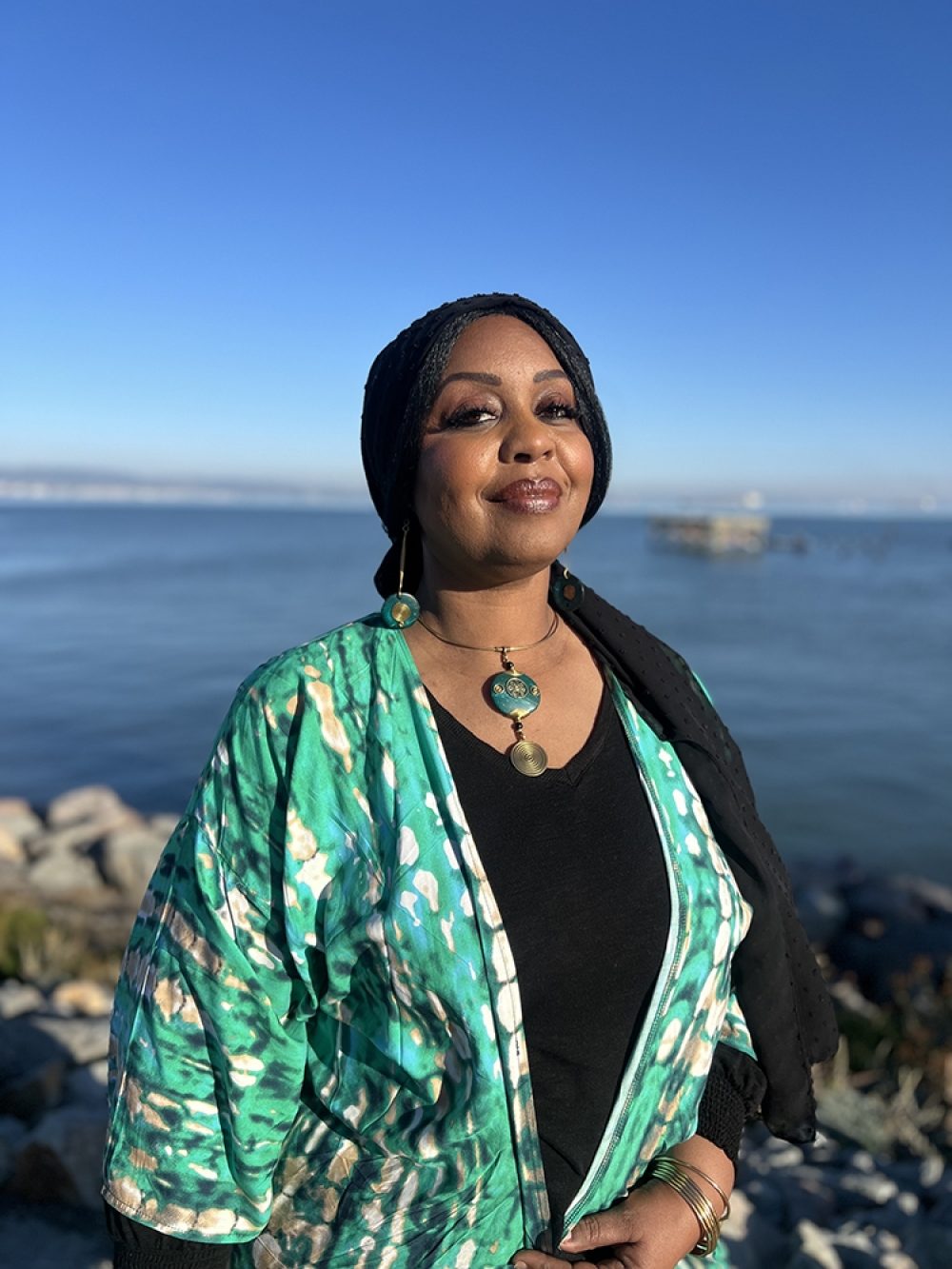
That's really amazing. And one thing I found interesting about the folktales that you share in the podcast—because, I had never been introduced to any Sudanese folktales—I'm from a totally different part of the world…
Lots of Sudanese haven't been introduced to Sudanese folktales, so…you’re good!
That's the great thing about this. They’re so accessible, so easy. And something thing I found interesting were the morals that were shared in the stories. I found them to be just a bit different from what I was traditionally used to in Western storytelling. For instance, it was in the story of the Eagle and Lolaba, that the moral was not to be greedy. So all of these messages in these folk tales—are there any specific ones that you hope to relay to a growing Sudanese-American audience, and anything in particular that's unique about these messages and these morals that they won't find in non-Sudanese folktales?
Yeah, I mean, it's been interesting. I've been getting a lot of feedback since launching this podcast. From people from all over the world, all different cultures, and people who say, “Hey, we have some version of that story from where we come from,” and it would be like in Germany or Brazil. And it just reminds me that we have a shared humanity, and these stories—anybody can relate to them, because they are about our very core as human beings living on this earth, right? It's just expressed in different ways, depending on where you are culturally in the world. In the story you mentioned, Lolaba, it’s about this boy who just couldn't get enough, and wasn't grateful, and wasn't thankful for what he had and always wanted more, and listeners will find out what happens in the end. But for me, I think this is an important message today, for younger generations.
I have Gen Z kids who are a little older now. But I think what I'm seeing today is a new move towards just having more and getting more. I'm seeing it in social media. I'm seeing that there's a lack of satisfaction, or thankfulness and gratefulness for what we have. We're on social media. It's like, we want more, more, more. We want to look like her. We want to be like this person. We want to travel like this person. And to me, a story like Lolaba teaches kids that what you have is valuable. What you have is valuable. It’s not to be unambitious, but not to fall to greed. And so that to me is universal. That's like a universal concept. It just happens to come from a Sudanese story and a magical eagle in it. But I think everybody can relate to that. And then there are other stories, like there's a story that’s just very simple, Fatima and the ghoul. And it’s just a very simple, don't open the door to strangers. Be careful. Just small, small messages like that that are valuable, to whoever is listening.
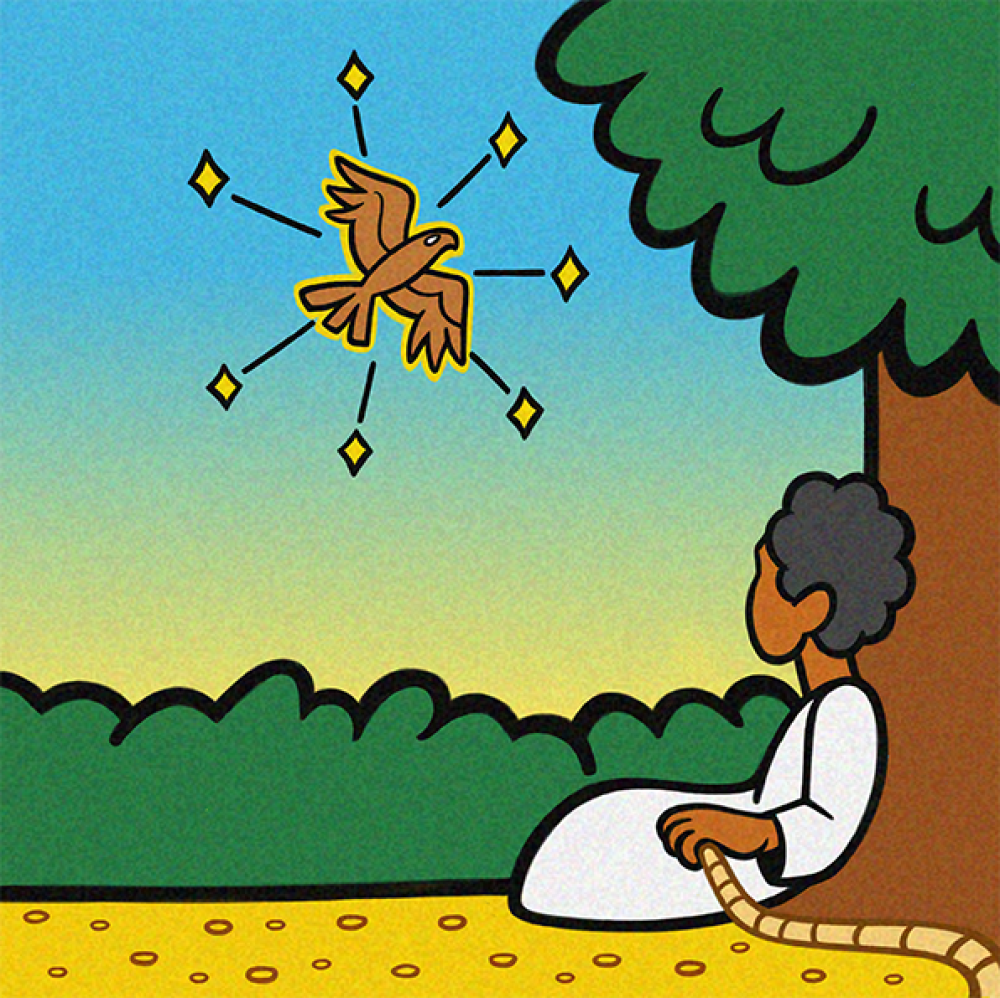
Yeah, absolutely. I agree. Don't open the door to strangers. And he was a tricky ghoul. He was changing his voice, doing some sketchy stuff to try to really trick her.
Folktales are old. And we're told, “at a different time, that didn't have today's sensibilities.” And so in even translating these stories or writing them for the kids of today, I had to make some changes here and there to make them child-friendly for the 21st-century child. Some were scary, like that ghoul originally is a very scary creature that I had to tone down and make a little goofy. Make him a little G or PG, if we're talking in terms of ratings.
And then, honestly, there was a lot of problematic beauty standards and misogyny. Fatima in these stories is described in the old stories, as she had light skin and long hair, and that was the beauty standard that they were working with a hundred years ago. Today, that's not what I'm going to say. And she wasn't just at home cooking and cleaning. She was reading her favorite books. And in another story, Muhammad, he’s like the hero, but the girl is also a hero. She is smart, she kind of saves herself a little bit as well. Right? So you know just little changes here and there, which anybody who has studied folklore knows—Cinderella of today is not the original Cinderella. Snow White—those seven dwarfs were not cute little dwarfs. They were something else, back in the day with the Brothers Grimm. So I think, because folktales—oral folktales are living, breathing. There's no copyright. They don't belong to any one person. They're allowed to change with the times and with the people, and I think that's a beautiful thing about folktales, oral folktales.
Yeah, you're right. I never even thought about that. That's a very advantageous aspect to them—that they can change, but the core message always stays the same. And it's something that everyone agrees on—like “don't be greedy.” So what do you hope people take away from Folktales from Sudan, especially for those who are unfamiliar—as I was, as I am—with Sudanese culture?
I'm a big fan and proponent of cultural diplomacy, and that is the idea that culture connects people, and that something as simple as breaking bread with somebody will help you care about them and understand them. And for me, it's been telling stories about Sudanese people and culture and history and heritage that, I think, when a listener hears a story like that, it's something different. They relate Sudan to a different idea than they would through hearing a headline in the news. There is a narrative there—Chimamanda Adichie's manifesto of The Danger of the Single Story—that still is going on. If there is a single story about a place, if there is a single story about Sudan—that it is a troubled place, plagued by war and poverty and famine. We do have those things, but we also have so much more. And that so much more isn't being relayed or reflected in media.
I'm from media. I am in a newsroom. I know we've been taught, “If it bleeds, it leads.” If it bleeds, it leads. If there's no conflict or problem, if there's no tension in the story, we say, if there's no conflict, then it's not newsworthy. And I am totally against that. I believe the more cultural stories there are in the world, the more we get to know each other and therefore care about each other. We've been complaining a lot as Sudanese people about there not being enough attention to Sudan in the news about this war and the devastation. But then, also, on the other hand, a listener has to have that initial vehicle, I think, to care about a people, to care. If somebody hears a story about a Sudanese food on a national public radio, then maybe next time they hear about Sudan they will actually listen and care, because they're connected. They're connected through something relatable to them. Whether it's, again, music or art or stories—they touch us. And in a special place in our hearts. And that's been my goal throughout this.
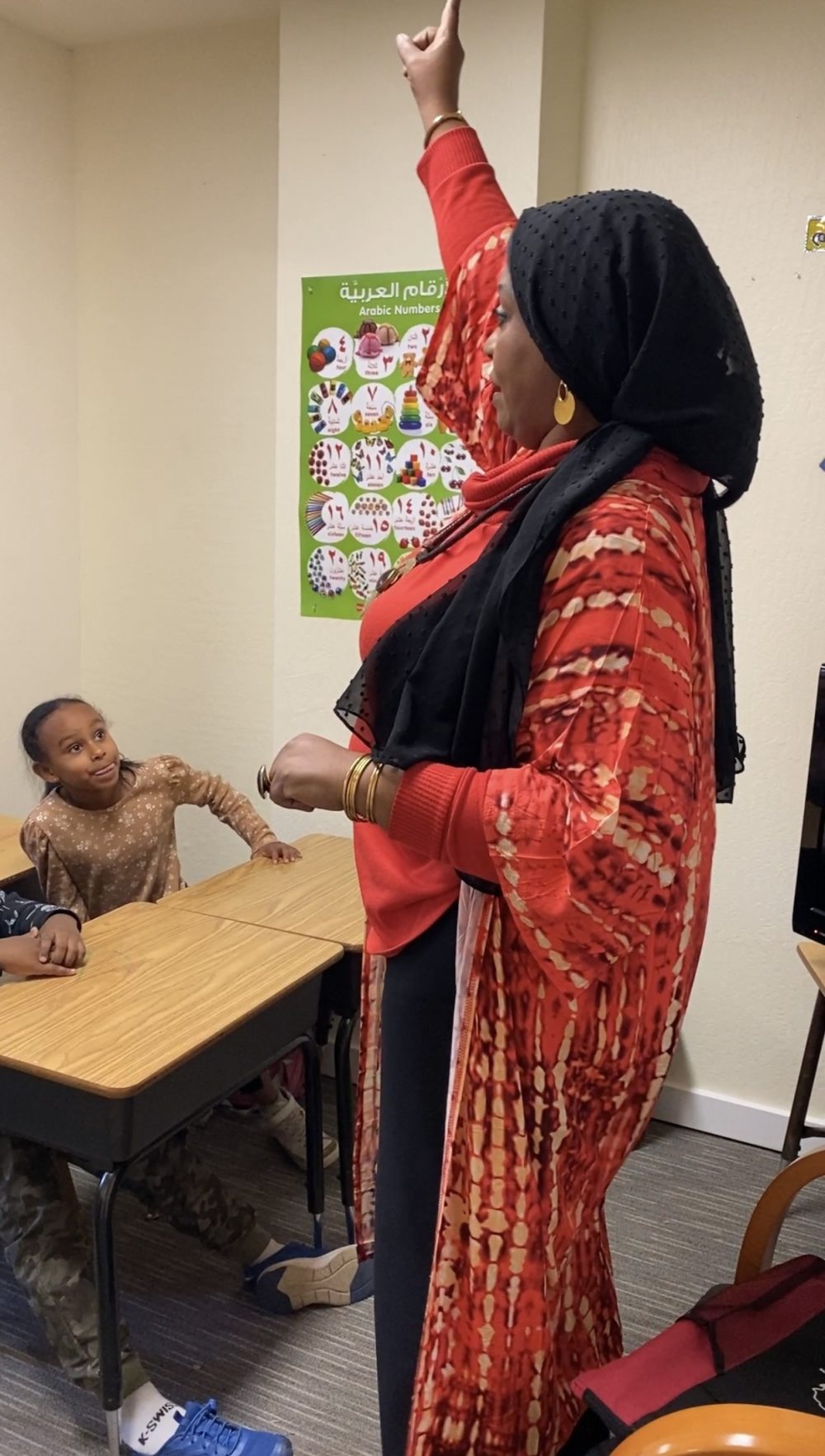
This must be a fulfilling endeavor. You mentioned how art touches people differently. Of course, one of the things that can touch people is music. And so I wanted to focus on that for the next couple of questions. Did you use any sort of traditional Sudanese instruments or musical styles? In this podcast there is some music here and there at the beginning, at the end, in the background. So, was there any sort of focus on doing traditional music?
Yes, absolutely. When I made this podcast I knew the music used for background for these stories, and the music used to sound design and to score had to be Sudanese music made by Sudanese hands, and preferably traditional Sudanese music, using Sudanese instruments. That was really important for me. The people, the amazing engineers, my public radio friends and engineers who sound designed our stories, they're not Sudanese. They're very American. They don't know our music. So we had to work together to source Sudanese music. And that meant for me going into the WhatsApps of the Sudanese, asking people, “Who is a musician that can make music for us?” Who's already making instrumentals that? Maybe we can purchase some tracks? But what I didn't want to do is to get some generic background music that did not relate to the culture.
It was difficult, because there's not a lot of Sudanese music online overall, and not a lot of instrumental Sudanese music, and within that, not enough clean and usable instrumental Sudanese music. Sometimes it's somebody playing his oud in his house. I can't use that to mix in a project like this for a podcast, however lovely it was. So I commissioned folks. I commissioned Sudanese musicians to create music specifically for this podcast, and it ended up lovely. I love it. There's a lot of Sudanese—there's oud, which is like a guitar, and that comes from the Arab northern influences in Sudan. I should say, Sudan is a very diverse country, with hundreds of tribes who speak so many languages. I have to say the disclaimer that these stories are the ones I heard from my family, who are from the center and north of Sudan.
In the future, I'm planning to get more stories from around the rest of Sudan, but I think it's important to say that, and that goes for the music as well. The drums and the oud and the strings, even we have some violin. All of that was sourced from real people. Here in California, we have somebody in Saudi Arabia. We have somebody in Aswan, in Egypt who is Nubian. My background is Nubian, which is traditionally, historically, the people of Northern Sudan and Southern Egypt. And we're kind of cousins, and we kind of have the same music and the same instruments. So yes, this is also a celebration of Sudanese-made music specifically for this podcast.
That's interesting—the commissioning and needing to work with Sudanese artists.
And I wanted to support artists as well. This was an opportunity also to support musicians, whether they made new music for me, or gave me permission, even exclusive permission, to use a piece of music that they had already made. This was supporting them as well. And they, you know, they really appreciate it. They're mentioned—all of them are mentioned in the credits at the end of every single episode, by name. So I love that aspect, as well, hyping them up and lifting them up as well.
Yes, of course. So as you said, the music is a big part of the podcast. It helps weave things together, in some cases, it actually plays a narrative role in the story, like with the story of Lolaba. So, including music in Folktales from Sudan, was that—you sort of touched on this—but was it a process that came naturally, or did you have to make a conscious effort to include auditory elements to augment the fact that this is a podcast, and not you standing in front of people and performing?
Our culture is a musical culture. And drums, especially, are a big part of many of our rituals and life in Sudan. There are always drums around us. And so it's always been a part of the stories. My Uncle Al Bagher told these stories, and many of these stories had little songs in them, or a chant, and, for example, in Lolaba, he was calling out within the song, Lolaba, ya Lolaba, bint al-saghira—coming to think of it, it’s kind of like a Broadway musical, where there's a story going on, and then they break out in song and then come back to the story. So that's what Sudanese storytelling is like. The music and the songs are a part and parcel of the story. So that was important to reflect as well in this.
In this podcast, it's not just me telling a story. It is also the little songs that you can sing along with if you hear the story more than once. I have many kids, not a single Sudanese drop in them, who are now singing these songs. It's really cute. And so song is an integral part of our storytelling. Music is an integral part of our storytelling, and that's why music was so important to this project. Now I'm doing live storytelling in our public libraries, and accompanying me is a musician who plays oud live, and he's one of the musicians who played music for us for the podcast. I can't imagine telling these stories without the music. Music moves them along. Music gives them their authenticity. They're not an extra that's been added. They're a part of it. They've been a part of it.
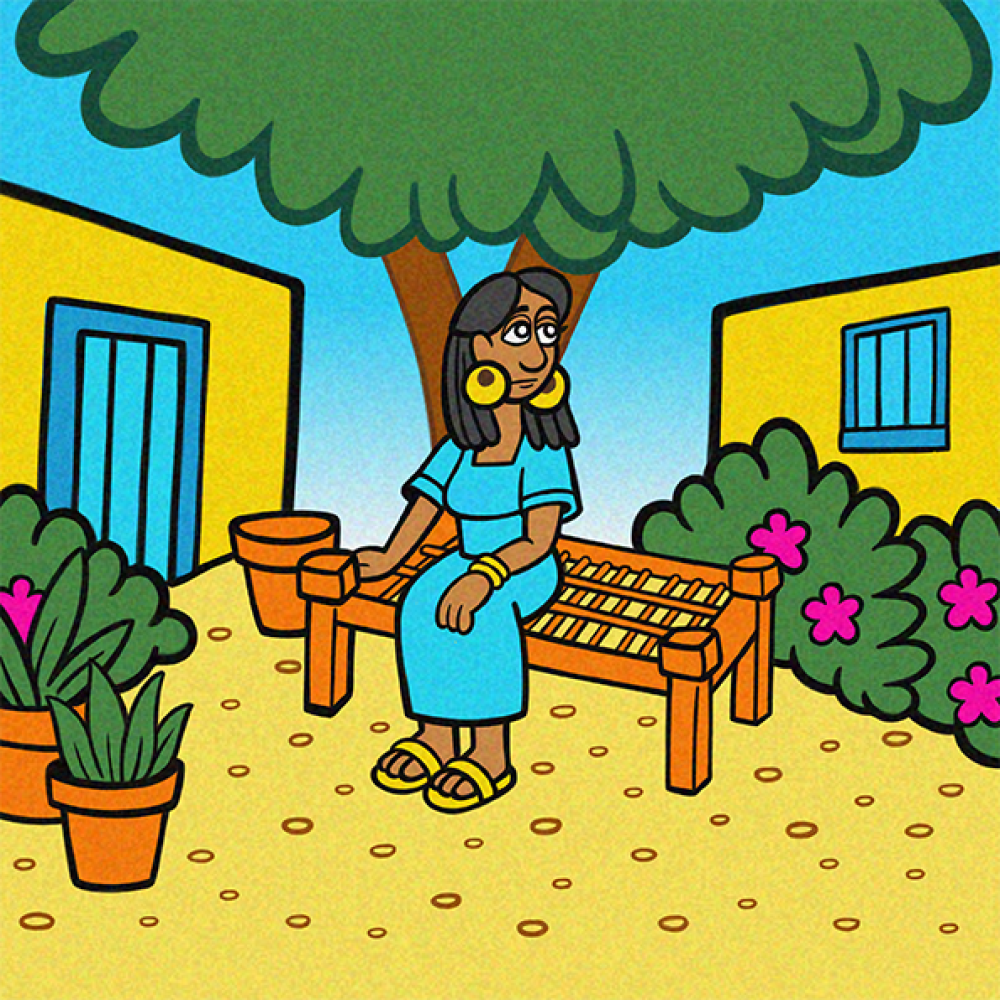
You mentioned telling these stories at local libraries and things of that nature. I know for a lot of kids, it’s probably their first time being introduced to, potentially, anything from the East, anything African, anything Sudanese. So did that start—that sort of in-person, doing it like your uncle Al Bagher—did that start after the formation of this podcast or was it something you always did?
That came after the formation of the podcast for sure. I had not done live storytelling before. I'm a radio person. I'm used to being in my studio, you know, doing my radio show or my podcast. If we've had events, I could be a host at an event. Something like that. But storytelling on a stage started after this podcast. So we were invited to public libraries to come and tell Folktales from Sudan. And it's been an amazing experience. It's been all these kids and their families, like the parents, have come to me after a storytelling and saying, “We've never heard these. We love this. It's not just for children.” That's something I'm hearing a lot as well, that the grownups are connecting to these stories as well. So now at first, it was hard, and I was like, I don't know how these musicians and performers perform. It's a different skill set, but now I'm really liking it. I'm enjoying it, and we're going to be doing a lot more. And it allows for call-and-response too, which is great. And that call-and-response is just incredible, just like having an interactive experience and letting them kind of perform with me as well. That's been great.
Speaking of expanding the podcast—do you have any other future plans for expanding the podcast or just expanding this mission really, perhaps into schools, other media, things of that nature?
Yeah, we're hoping. So we just dropped our last episode for the season, our first season, if we're talking in podcast terms, so it's ten stories. We definitely are doing more libraries. And once the school year starts, we'll be doing assemblies at schools, which is really great. Looking forward to that. We have some museums around that have also shown interest. We want to do the storytelling festivals that exist. While they still exist. That's a whole other story on arts funding and how it's dwindling right now for these types of efforts. But that's a plan. And definitely a season, you know a next season and a next season and next season. One thing I'm planning to do is, we have many, many scary stories that are not for little kids. So I might be doing a Halloween edition for grownups or for the older kids, because again, it's just such a rich culture with so many genres. If we're talking in like Western terms, there's comedy, there is horror. And when I say horror—you know, horror, horror, really, really scary stuff. There's fantasy, and the kings and the queens and the princesses. So there's so much that ten stories is just the tip of the iceberg. I can't wait to do more.
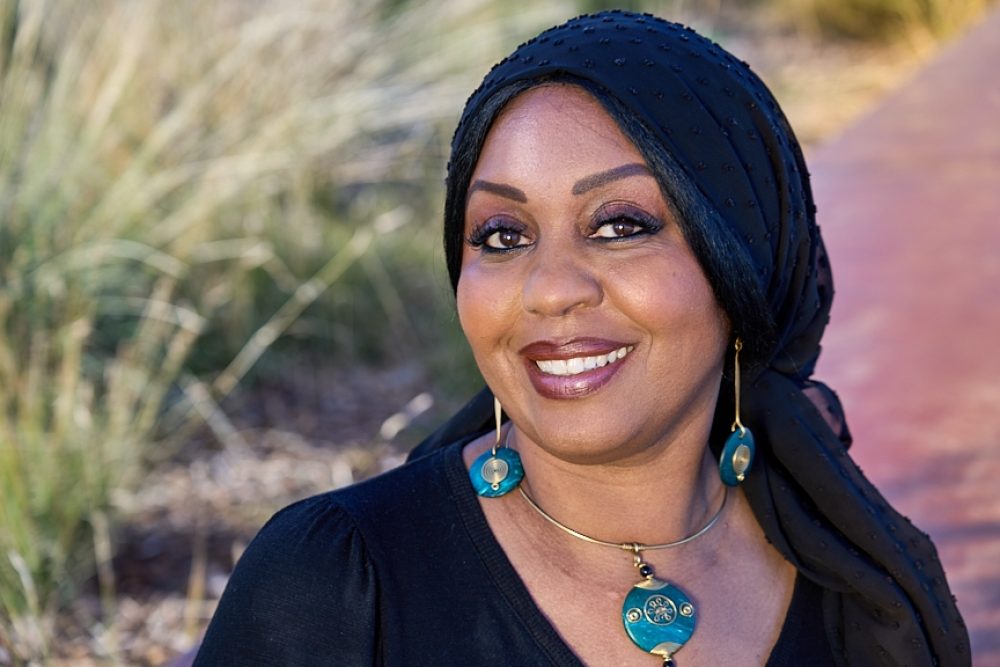
I'm so intrigued, because now, as an adult, I am much more able to withstand scary stories, but when I was a kid also, I loved hearing them. So I'm interested if that ever comes out.
It so will, because there are dozens of them. We have witches, we have ghouls, we have zombies, we have people who are dead, and they don't know they're dead, but they're dead. We have—there is a lot!
Please get on that ASAP. Please!
It'll have to be a different feed. Because I don't want a little kid—one of the preschool kids listening to Lolaba, and then the next thing they get is the zombie with no head on, so we'll see. That's why I'm going more into this new space that I had no idea about, which is the children's media space. There’s a whole world of people who do kids podcasts, who do kids programming. So I want to go to a conference that talks about children's media. It's going to be a different thing for me. I have a lot to learn. I have a lot to learn, because it depends on the sensibilities of people. It depends on so many things. And that's what I'm learning is that what's okay for somebody is not for somebody else. It's tricky, but I guess ratings take care of all of that. And, like Common Sense Media. But the other day, somebody was telling me that they love the story of Fatima and Ghoul. But for the child, it was really unsettling, the idea of a stranger trying to be a loved one, knocking on your door. And pretending to be somebody else who is a loved one—that was unsettling for this child. But the child was like four years old. So anyway, I'm getting feedback like that, too. It'll all inform the project. Like the ghoul, I had to make him goofy and not creepy.
Yeah, he was goofy going to the mechanic, and asking him to fix his voice.
Who thinks of that like? Who thinks of that except an old grandma in 19th-century Sudan.
Right! The things they think of—you can't make this stuff up, but they do.
They had amazing imaginations, because that's all they had. That's all. This was the entertainment. And this was pre-radio.
One point that we didn't touch on—but it's an interesting thought-experiment—is the fact that we're so inundated these days with entertainment. There's no shortage of what you can be entertained by. But our ancestors, they were really limited.
I wanted this to be a reflection of the experience of oral storytelling. Audio. Not video or animation. Audio gives you the opportunity to imagine and use that imagination just by hearing somebody talk. Some people have pushed back. I have gotten the messages of: Why isn't this a video? Why isn't this a cartoon? With today's children with technology right on their iPads, on their phones, the visual is very big nowadays. Even us in podcasting, we're starting to see more podcasts go to YouTube. They keep saying, “You need a visual; you need a visual,” and so I totally refused that for this project. And I said, “You know what? First of all, give your kids’ eyes a break from the visuals. This is an opportunity to just relax, maybe even close your eyes, and just listen to somebody telling you a story.” Pediatricians are saying that listening to podcasts for children also grows the imagination of children, because with visuals and video the image is there for you. You're not given room to imagine what the ghoul looks like, or what Fatma looks like inside that house, or Lolaba the Eagle. What are they? How are they flying down from above? You get to imagine that. You get to imagine that. And I love that about oral storytelling.
You're right. That's definitely a big plus.
There's a lot. Our eyes are tired from looking at screens, and this generation, you know, their whole life is on screens. So why not be able to click, shut it down, and just listen to something beautiful?
So when can we expect Season Two? Or is that confidential information?
I'm working on it. I'm just recovering from Season One. This is a one-woman show. I was hoping to build this team and had applied for funding that has now been cut. Of course, with the devastation to arts funding that is happening in this country. So there will be a Season Two, I am hoping in early 2026. I have dozens and dozens of stories, so I need to translate them and write them down and go through my editors-in-chief, my mom and my uncle, and make sure everything is right. and make sure nothing is lost in translation. But stay tuned.
Yay!
I think the best thing would be just to follow our Instagram and Facebook. Anything we do or plan will be on there.
Related Audio Programs
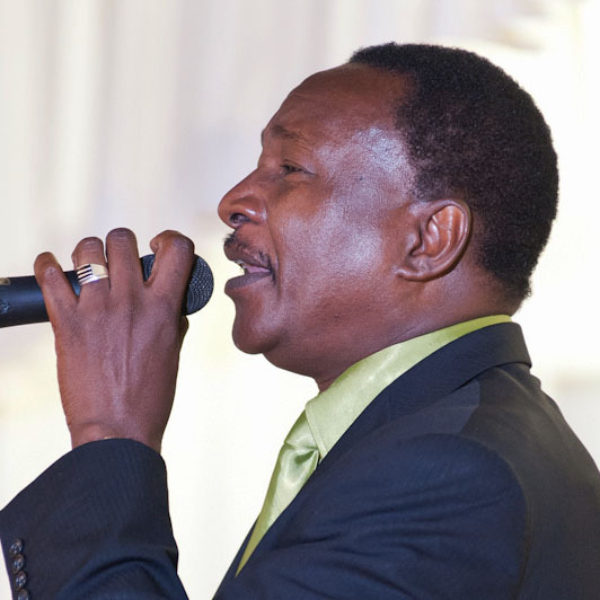
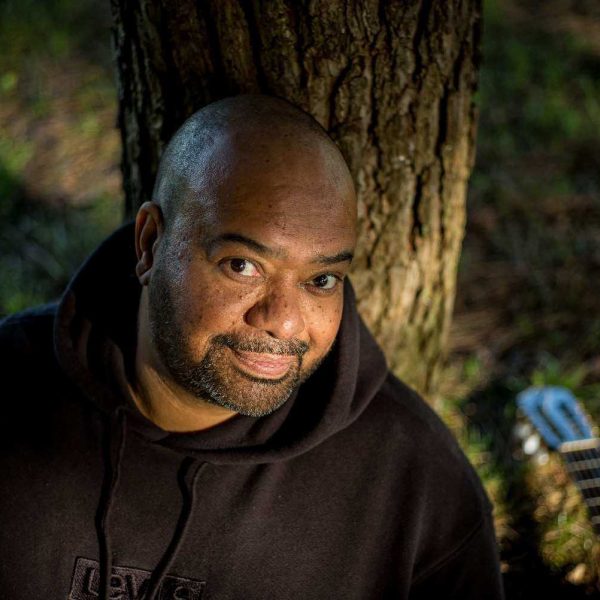
Related Articles
